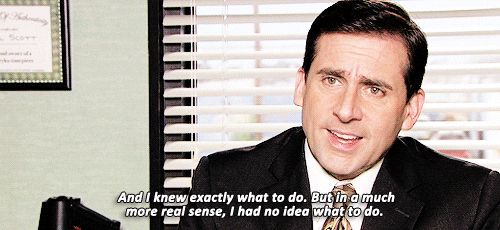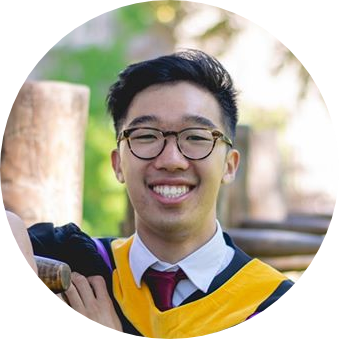Knowing Your Limits is Strength, Not Weakness
Humility in medicine and in life
Photo by Jörg Angeli on Unsplash
The Hippocratic Oath is an oath of ethics traditionally taken by final year medical students as they graduate and become new physicians. In the modern version of the oath, new doctors are reminded of the importance of humility, and are encouraged to “not be ashamed to say ‘I know not,’ nor to call on colleagues when the skills of another are needed for a patient’s recovery.”
On first glance, the words “I know not” might not exactly inspire confidence to the ears of anxious and worried patients. However, “I don’t know” is actually one of the most confident things to be able to say, especially in that moment.
Feigning knowledge in front of patients may inspire false hope at best and result in decisions being made based on inaccurate information at worst. Plus, lying to patients is never a good idea. Being able to confidently say you do not know the answer to something builds trust and transparency, especially if you follow up with “but I will do everything I can to find out.”
Wait a second, but shouldn’t we expect our doctors to know everything? Don’t they go to school for this stuff? How can I trust them if they tell me they don’t know what’s wrong with me?
Well, that may true back in the day, when medicine was practiced more paternalistically and more physicians had God complexes. In reality, any doctor who will not admit the limits of their knowledge, energy, and skill are lying to themselves. Underneath their white coats and scrubs, doctors are human too, and have the same biases and fears, capacity to make mistakes and to forget things, as anyone else.
Upon entering medical school, one particular analogy is repeated ad nauseam: the idea that learning medicine is like drinking water from a firehose. Unless you have a really big mouth, this is extremely difficult because there is just so much to know in all of medicine.
In a podcast interview, surgeon and bestselling author Dr. Atul Gawande talks about just how complicated our healthcare system is.
In healthcare, for your 13 organ systems, we have 60,000 different diagnoses, 60,000 different ways your body can fail. And we have generated 6,000 drugs, 4,000 medical and surgical techniques and procedures, plus an uncounted number of ways to prevent those conditions, and we’re trying to deploy that capability town by town to every person alive regardless of their ability to pay.
It is simply impossible to memorize 70,000 topics in detail, as well as keep up with new treatment guidelines, drugs and procedures. Instead, medical schools are teaching us how to retrieve reliable, up-to-date clinical information, and how to critically appraise research findings in order to make the best decisions for our patients with the available evidence. In a sense, we are learning how to learn. And we are learning that there will always be gaps in our medical knowledge, at any point in time—I believe knowing that limitation will make us better clinicians.
Photo by JC Gellidon on Unsplash
There is risk to not knowing your limits. In this age of information and misinformation, being humble and knowing your limits is more important than ever. Everyone is entitled to an opinion, but we should try to make sure we are well-informed before using our platform and voice inappropriately. You don’t want to run the risk of endorsing bleach injections to the public as an unfounded treatment for a disease, for example. It is meaningless to contribute to noise with more noise.
I recently wrote an online exam for medical school. It’s a serial measure of progress, to sort of check that we are learning and advancing appropriately for our level of training, and we have to write them a couple times a year. I didn’t do so hot on my last one, and upon reflection, I think it was because I was too confident when using process of elimination. If I even vaguely recognized a keyword in the answer stem from my limited clinical experience, I would think I knew the topic and would hazard a guess between 2 and sometimes 3 choices. However, I was setting myself for failure, because obviously there are penalties for guessing the incorrect answer, and the calculated final score takes that into accountI had forgotten that. So this time I simply skipped the questions I had no idea about, rather than pretend like I did.

Another example is completely unrelated to medicine, and that’s running. In running, pace is extremely important, especially at the beginning of a run. Most people start out races incredibly excited and optimistic, and tend to run faster than they have trained for. They lead the pack early on, but when that adrenaline wears off, they hit a wall and can’t keep up with their pace. Running is a sport that requires a lot of discipline, humility, and a lot of knowing yourself and checking in on yourself. It rewards patience, and sometimes that means pulling back on your effort to make sure you have enough fuel in the tank to finish. And if you don’t listen to your body when it’s telling you it’s at its limit, you could injure yourself and get hurt. I want to make the distinction here that knowing your limits is not the same as succumbing mental barriers. The two are not exclusive; you can simultaneously know your limit, and also know that you can push through it with the right effort.
In summary, it is okay to say “I don’t know” when you don’t know something. It is a sign of maturity and a sign of humility. Often it can lead to more learning and discovery than if you feigned confidence. This applies to both medicine and life in general.
